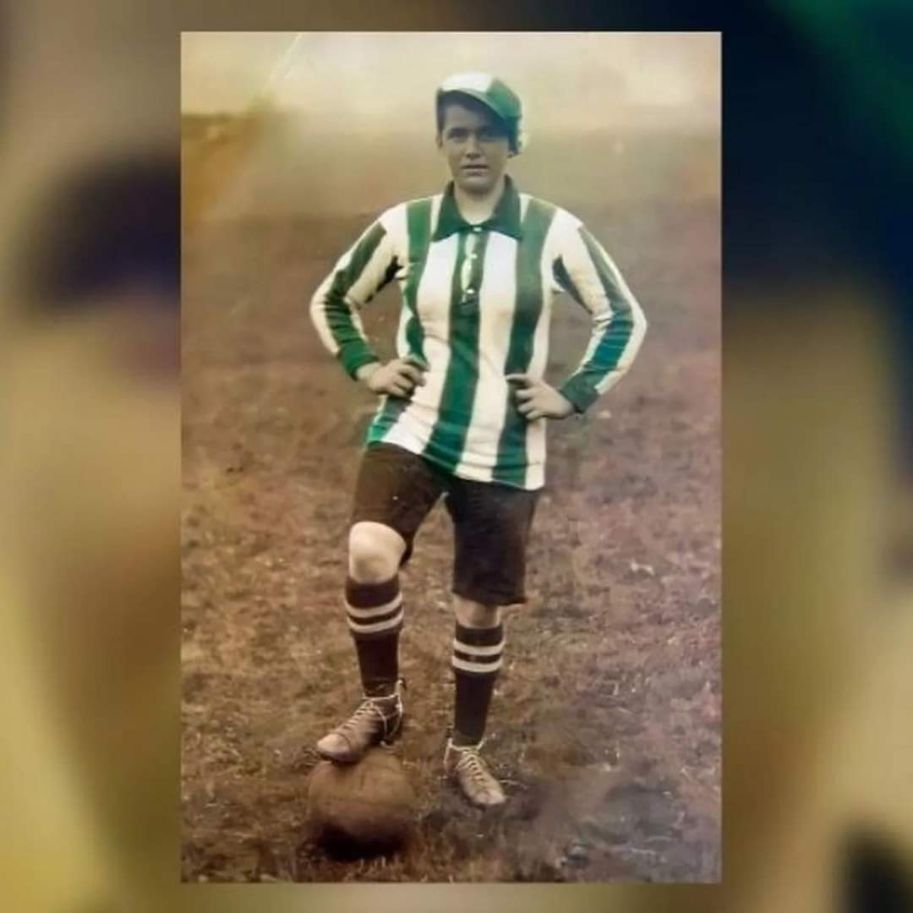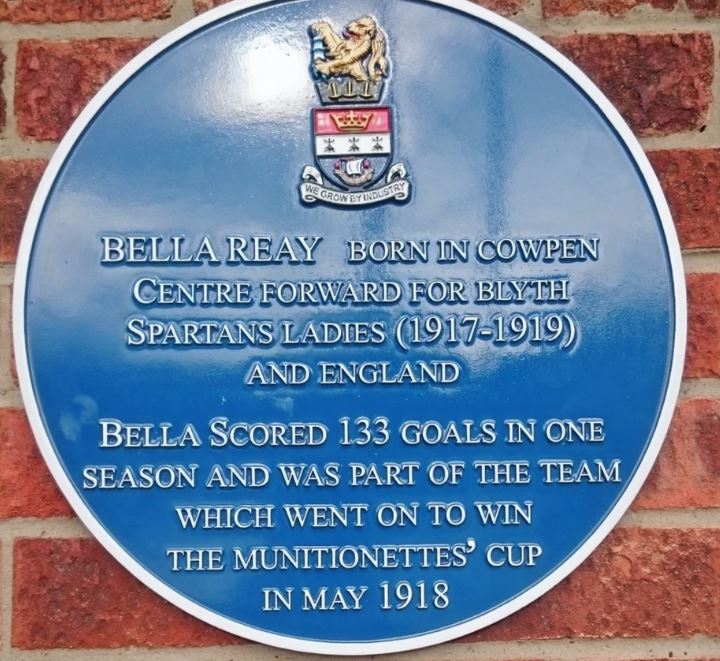A stage play commemorating Britain’s forgotten female footballers during the First World War is coming to Clapham later this month.
Wor Bella will have a three-night run at The Bread & Roses Theatre from 22-24 April and tells the true story of Blyth Spartans Ladies player Bella Reay who, along with thousands of other women across the country, combined work in munitions factories with playing football for charity.
The matches attracted crowds in their tens of thousands and Bella, who netted an impressive 133 goals in 30 games during Blyth’s cup-winning season of 1918, became something of a superstar in the north east of England.

However, the football-playing WWI Munitionettes have largely been erased from history.
It is now the hope of playwright Ed Waugh that, more than century later, they will finally get the recognition they deserve.
Waugh said: “These women saved the war effort.
“They ran the post offices, they drove the trucks, they worked the railways.
“They were heaving armaments which was really dangerous, and working 60 hour weeks yet still finding the time to play football to raise money for war widows, children and maimed soldiers.
“It’s an incredible story and yet there are no memorials to these women – they have been effectively written out of the history books.”

With her goalscoring pedigree, Bella, played by Vera actor Catherine Dryden, has been labelled the Alan Shearer of her time.
It is perhaps fitting then that Shearer, one of the most prolific strikers in the men’s game and the Premier League’s all-time leading goalscorer, has a cameo in the play via video, playing a Match of the Day pundit.
But Waugh, whose focus on working class heroes extends across his body of work, insists the story is about more than just football.
“It’s a tale of misogyny really,” said Waugh.
“This was the first time working class women had that level of freedom and in those 18 months before the end of the war, they became quite revolutionary.
“They had their hair cut differently to how they had done in the past.
“They wore trousers, they showed their knees while playing football.
“They went into pubs unaccompanied by men and, in many cases, would drink the pubs dry. Back then that was all quite radical.”
However, this radical time was not to last.
Waugh described how, once the war came to an end, these women were thrown out of industry and back into the home.
Women’s football did however continue to bring in large crowds in the years immediately following the end of the conflict.
But then in 1921 the Football Association introduced a ban on women playing football that would last for half a century, until it was finally lifted in 1971.
With the recent success of the Lionesses and the rapid rise in the profile of women’s football in Britain, Waugh thinks it is now more important than ever to remember the female footballers of WWI as pioneers of the game.
He believes stories like Bella’s should be added to the school curriculum and recognises that many of the same issues impacting women more than 100 years ago are still prevalent today.
Waugh said: “The fantastic Lionesses, the stars of the Women’s Super League, all these players are standing on the shoulders of these heroic women.
“My granddaughter is eight and she plays football. The important thing for young people in particular is to learn the lessons of yesterday so they’re not repeated today.
“The focal point of the play is about women’s football but it’s also about women’s rights – and how badly these women were treated.”
In 2018, Blyth Spartans FC unveiled a plaque at their Croft Park ground, commemorating Bella, who passed away in 1979, and her place in the club’s history.

More recently, Waugh met with Yvonne Crawford, Bella’s granddaughter, and the 82-year-old expressed delight that her grandmother’s legacy, and those of other female footballers in Britain, was finally being acknowledged.
Waugh added: “Yvonne is overjoyed.
“Her whole family is overjoyed that Bella Reay is finally getting the recognition she deserves.”
Velenzia Spearpoint, Artistic Director at The Bread & Roses Theatre, said Waugh’s play aligned perfectly with the organisation’s own values and history.
Spearpoint said: “Our theatre is women-led and based in a union-owned building.
“With our name rooted in rich working class history and our programming reflecting this, we couldn’t think of a more fitting setting for this exciting new production.
“We’re thrilled to have Wor Bella join us for this limited run, empowering forgotten stories which sparked societal transformation.”
You can learn more about Bella and other pioneers of the women’s game in Britain on the Wor Bella website.
Tickets for the play can be booked here.





